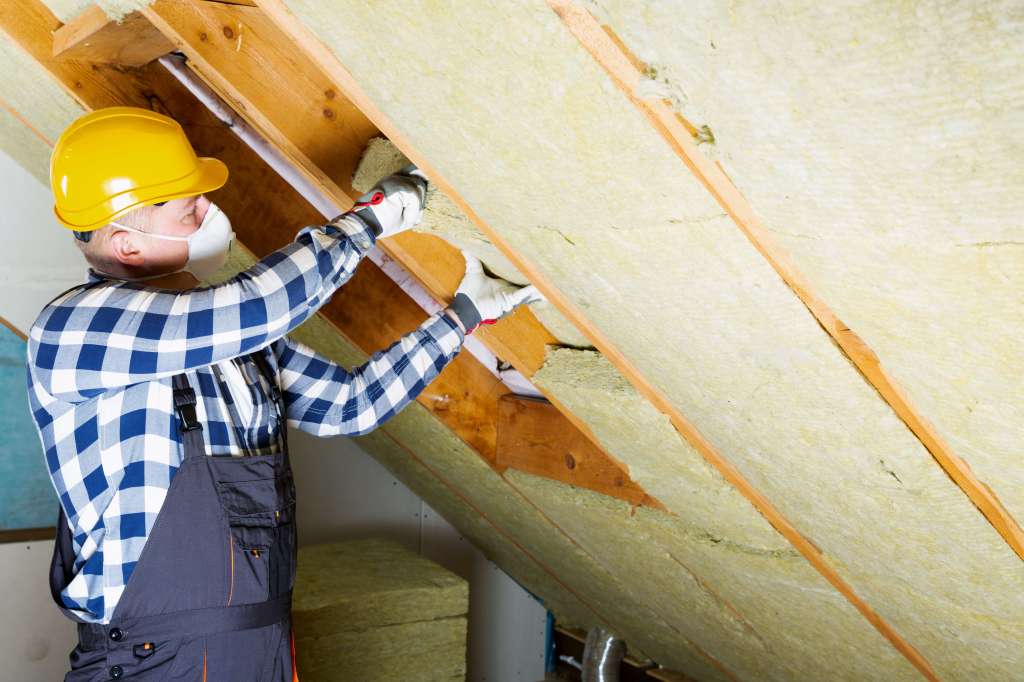If you’ve got a head for heights and want to work in the construction industry, you might consider becoming a roofer.
Roofers install and repair roofs, from commercial and residential buildings to flat roofs and thatched cottages.
A guide to becoming a roofer in the UK
The route to roofing needn’t be complicated. Read our step-by-step guide for everything you need to do to get started.
- What does a roofer do?
- How much can you make as a roofer?
- Qualifications and training
- Stay on top of health and safety advice
- Accreditation and industry bodies
- Register as self-employed
- Think about roofing insurance
- Organise your books
First, what does a roofer do?
As you’d expect, roofers work on the top of buildings to install, renovate, and repair roofs. You could specialise in being a flat roofer, a slate roofer, or even a thatcher with the right training.
Depending on the job, day-to-day activities could include:
- waterproofing flat roofs
- tiling sloped roofs
- installing underlay and battens
- rendering and sealing roof joints
- installing skylight windows
Other tasks may involve checking the condition of roof timbers, fitting insulation, taking measurements for materials, and cutting roofing felt.
How much can you make as a roofer?
Depending on experience, roofers can earn between £17,000 to £35,000 a year. But this could be considerably more if you’re self-employed and working as a contractor.
In fact, research from Simply Business found that self-employed roofers are the highest earning trade in the UK, with an average turnover of £65,213.
At the height of your career this could be much more, while specialist skills like thatching could see you earning between £500 and £600 a week.
Roofing qualifications and training
There’s no set path to getting a job as a roofer, and you don’t need a university degree. You either need to complete a college course, an apprenticeship or build your skills with on-the-job training.
City & Guilds offers a number of vocational courses for roofers, including:
You could also choose to specialise further with training courses in thatching or leadwork, for example. Or if you’re interested in how the building industry can adapt to environmental pressures, you might want to train in eco roofing, like learning how to install a green roof or solar panels, for example.
Apprenticeships are a good way to get formal training and paid work experience at the same time. A roofing apprenticeship can take up to two years to complete – check the government website for a list of current apprenticeships in England.
What skills do you need?
Along with knowledge of the construction industry, skills needed to be a roofer include:
- attention to detail
- physical fitness
- confidence working at height
- numeracy
- ability to understand technical plans
- basic carpentry
- ability to operate equipment
- flexibility and teamwork
- good communication

Stay on top of health and safety advice
Working as a roofer is high-risk. Not only are you working at height, you’ll need to understand how to reduce and manage the risks of working with excessive dust, asbestos, and machinery.
As a contractor, your employer will provide the necessary PPE for you to carry out your work safely. You should also be familiar with the HSE health and safety guidelines for people working on roofs.
Accreditation and industry bodies
You’ll need to have a Construction Skills Certification Scheme membership card (or equivalent) to train and work on a construction site.
And if you want to get professional accreditation for your roofing skills, the National Federation of Roofing Contractors (NFRC) offers the RoofCERT National Roofing Accreditation – the only one of its kind in the UK.
Professional bodies in the construction industry:
- Institute of Roofing – you can become a member for access to training and industry contacts
- CITB is the industry training board for the sector in England, Scotland and Wales
- National Heritage Training Group – offers specific training and resources for people who specialise in working with historic buildings
Register as self-employed
Once you have plenty of experience in the industry, you may choose to be self-employed and work as a contractor for different clients. You could be working on a construction site, a client’s business, or residential property.
If you’re going down this route, you’ll need to register as self-employed with HMRC.
You should also be aware of the Construction Industry Scheme, and what that means for contractors or subcontractors when paying tax.
As an independent contractor, you can claim certain allowable business expenses when working out your tax, for example materials you use for work, replacement tools, or vehicle running costs.
Check out our guide on how to do a self-employed tax return when it comes to completing your Self Assessment.
Think about roofing insurance
You should think about roofing insurance when setting up your business as a roofer.
Some key covers to consider:
- public liability insurance
- tool cover
- employers’ liability insurance (a legal requirement if you have employees)
- personal accident insurance
- healthcare plan
Organise your books
If you’re self-employed you need to be keeping track of your income and expenses. For one thing, it’ll make filing your tax return on 31 January much less of a headache (you have to keep business records for at least five years after the tax year deadline). But for another, it means you can manage cash flow and plan ahead for the quieter winter months.
To make your admin life a little easier, check out our round-up of the best invoice apps for small businesses and download your own free budget calculator and guide for the self-employed.
Have you got any more questions about becoming a roofer? Ask them in the comments below.
Are you protecting your tools?
As the UK’s biggest business insurance provider, we know the importance of covering your tools. Why not take a look now and build a quick, tailored tool insurance quote?
